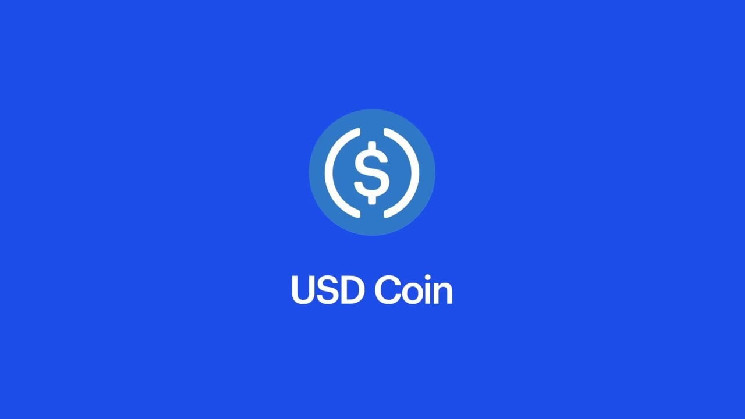USDC (USD Coin) has today taken center stage as its median transaction volume (7-day Moving Average) plunged to an 8-month low of $829.03. This development, which was last observed on September 11, 2023, when the USDC’s median transaction volume hit $830.27, has sparked discussions among crypto enthusiasts and analysts alike.
📉 $USDC Median Transaction Volume (7d MA) just reached a 8-month low of $829.03
— glassnode alerts (@glassnodealerts) September 23, 2023
Previous 8-month low of $830.27 was observed on 11 September 2023
View metric:https://t.co/qoxDnUJVsF pic.twitter.com/ndeTU3NEea
The USDC, a popular stablecoin pegged to the US dollar, is renowned for its stability and liquidity. It is widely used in the crypto space as a means to mitigate the inherent volatility of digital currencies. The recent drop in its median transaction volume raises questions about the factors contributing to this decline.
One possible factor affecting the USDC’s transaction volume is the current state of the broader cryptocurrency market. Cryptocurrencies often experience periods of high volatility, and the market sentiment can influence the demand for stablecoins like USDC. Investors may opt for stablecoins during uncertain times to safeguard their funds from market fluctuations.
Moreover, regulatory developments in the cryptocurrency space may also be impacting the transaction volume of USDC.
What could be the attribute?
After integrating USDC twice in the previous month, Circle recently added Polkadot, possibly bringing these movements to USDC. All Polkadot Layer 1s, also known as parachains, now have access to USDC thanks to Circle’s issuance of the currency via the Polkadot Asset Hub. Polkadot claims the merger would increase liquidity and open the door for more institutional users to join its ecosystem.
1/ 🚨 The wait is over!
— Polkadot (@Polkadot) September 19, 2023
Today, @circle has enabled #USDC, the second largest stablecoin by market cap, on Polkadot!
Now, every parachain in Polkadot’s ecosystem can access USDC natively without the need of a bridge.
Learn more in the 🧵 below 👇 pic.twitter.com/9MHqb3aRD5
According to Aaron Evans, head of the Moonbeam Foundation, “Native USDC will help foster a more sophisticated and mature DeFi ecosystem.” Since the frenzied parachain auctions of November 2021, Polkadot’s popularity has waned.
Polkadot’s staking layer allows for up to 100 Layer parachains, providing a level of shared security for the network as a whole. Projects may lease slots on the Parachain network by collecting Polkadot’s native DOT tokens from their communities and using them as collateral in an auction. However, the most recent price of $4.15 per share of DOT is a decline of 92.5% from the record high set in November of 2021.
Several parachain projects, according to Polkadot, have already announced USDC integrations. USDC is the native currency for Centrifuge’s liquidity pools. Centrifuge is a protocol for tokenizing and funding real-world assets. Users of the Centrifuge may now utilize either USDC or DAI to fund their assets.
Lucas Vogelsang, co-founder of Centrifuge, said, “We are excited to see USDC natively on Polkadot.” “It’s a big deal for Centrifuge’s Real World Assets ecosystem and a big deal for DeFi.” Users may deposit USDC into the decentralized omnipool exchange HydraDX or borrow the stablecoin on the platform Interlay.
